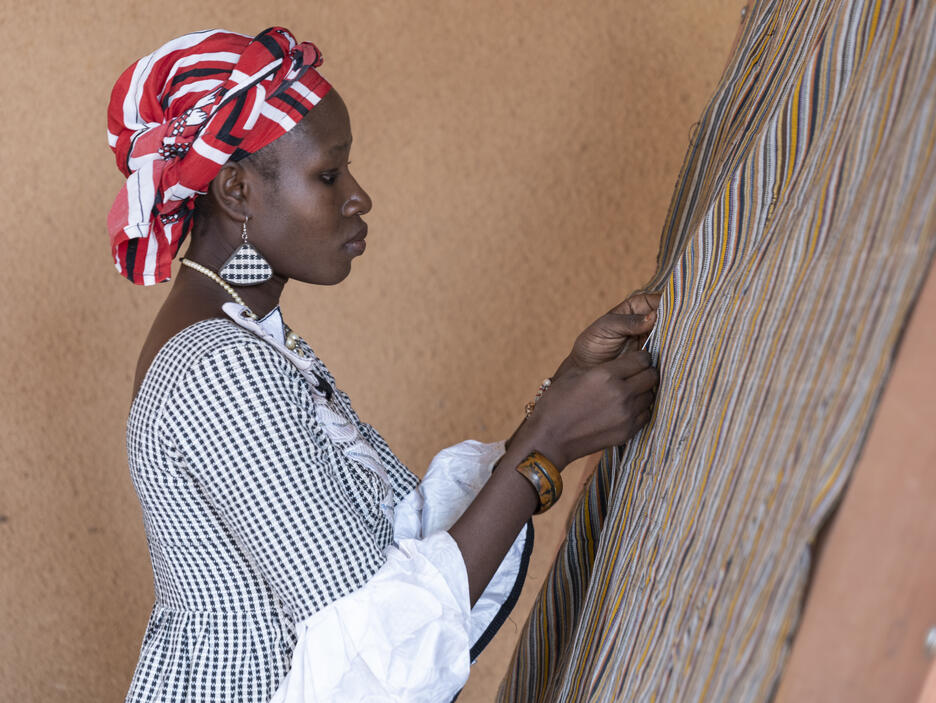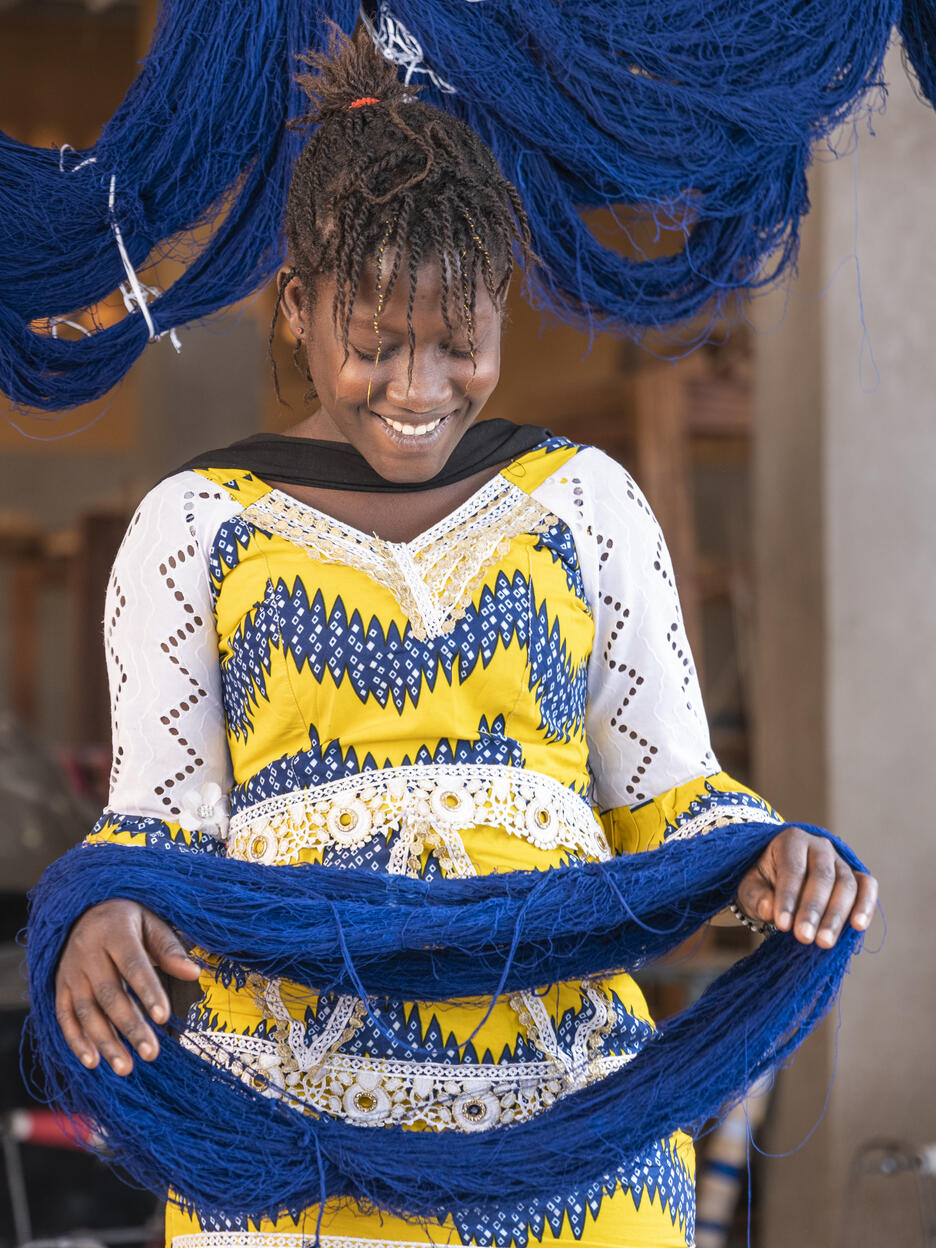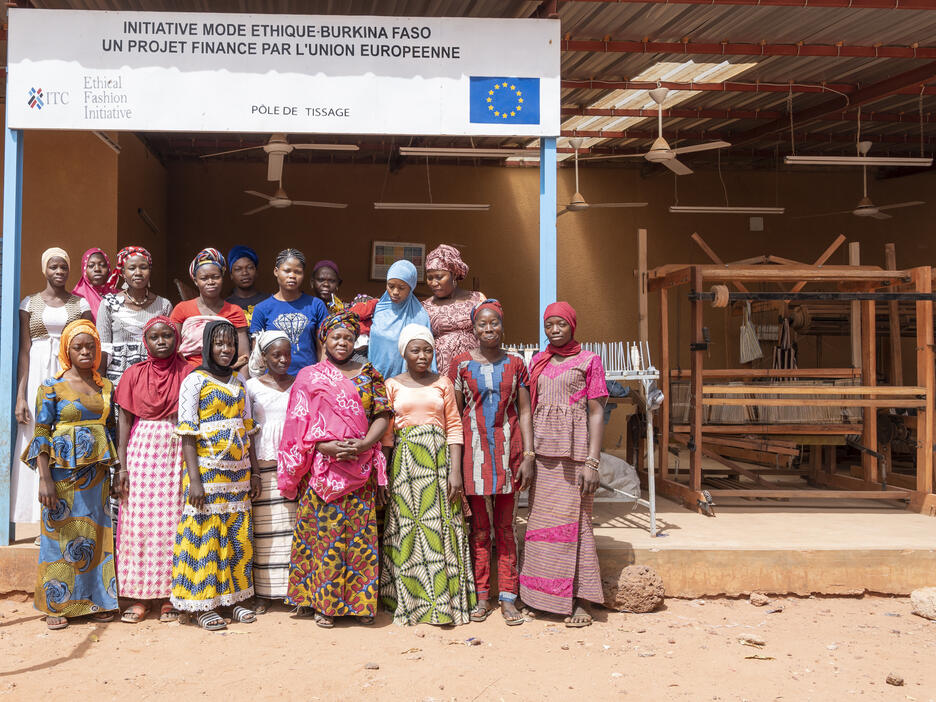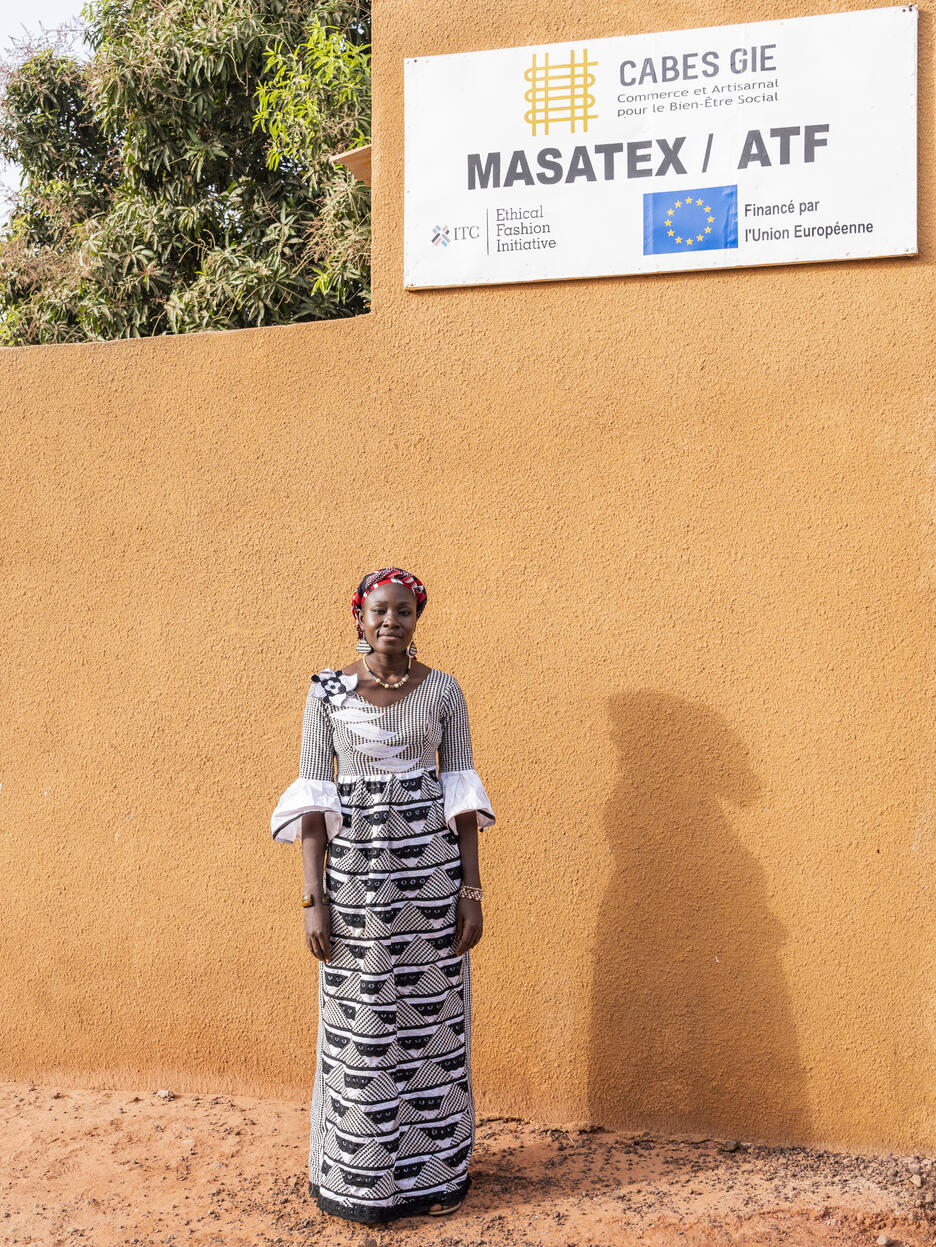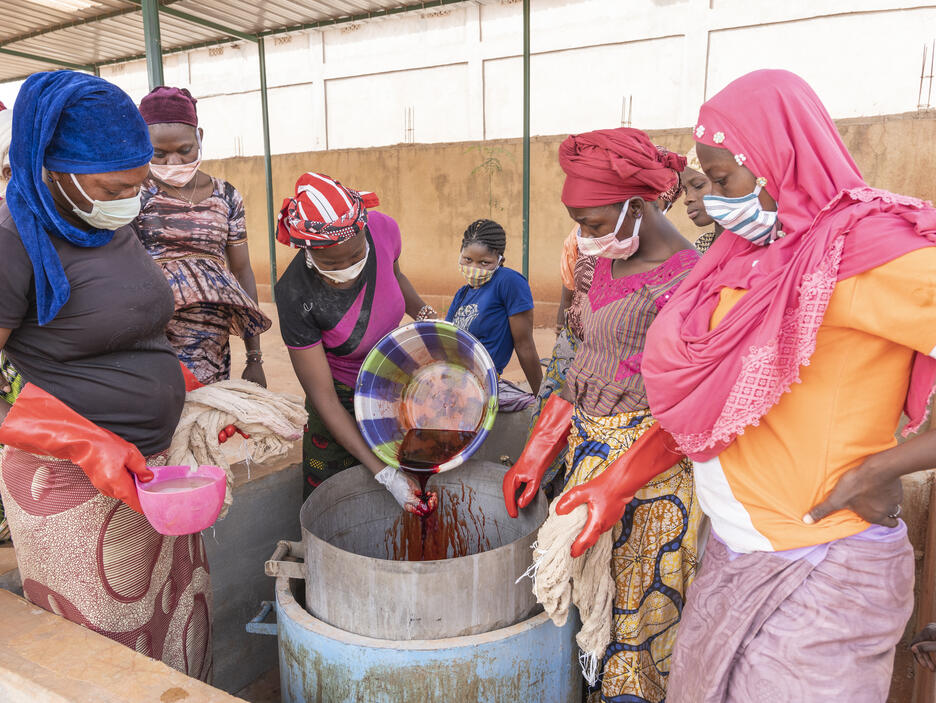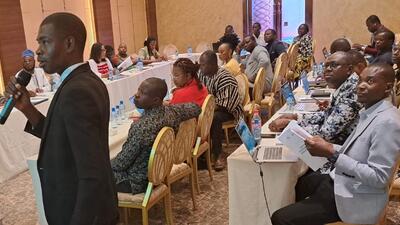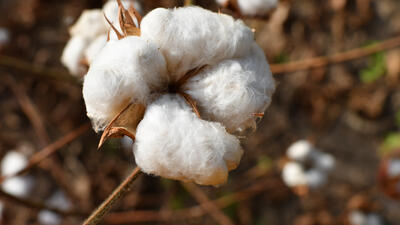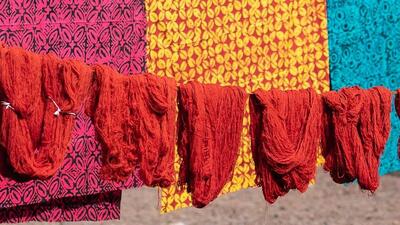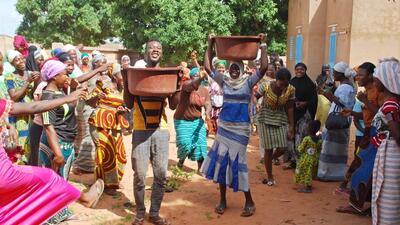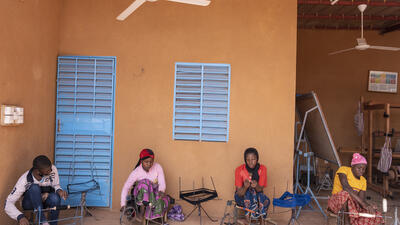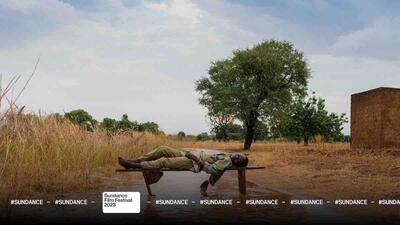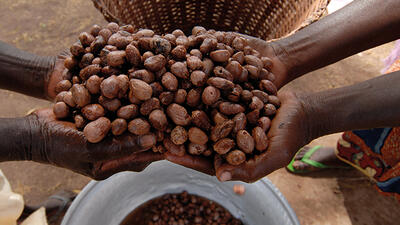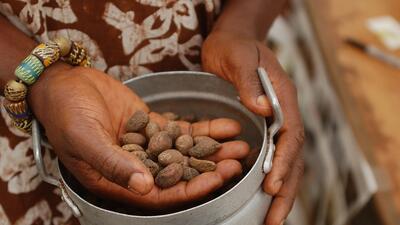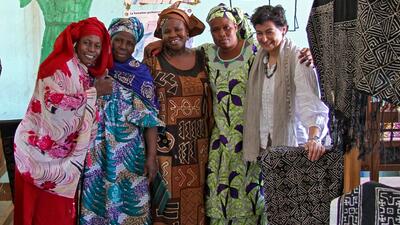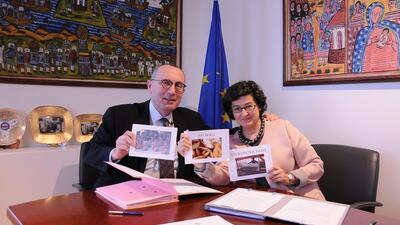
Growing strong weaving
As a young person, figuring out what to do with your life is never an easy task. Even more so for young women in least developed economies. This is the inspiring story of Naila Sakandé from Burkina Faso who weaved her way to financial independence – and has big dreams.
Naïla Sakandé had the fortune to grow up loved and supported by her parents. Her mother, a weaver and the President of a textile cooperative in Bobo-Dioulasso, was a particularly strong influence in Naila’s education.
When it came to deciding which career path to take, Naila’s father encouraged her to go for a public service job which would pay well and give stability.
This led Naïla to explore teaching. Although she passed the national competition for primary school teachers, she decided to change direction.
The now 29-year-old told her mother what she really wanted to become: a professional weaver, just like her. She knew managing a weaving association would bring in money and make her financially independent if she showed talent, creativity and worked hard enough.
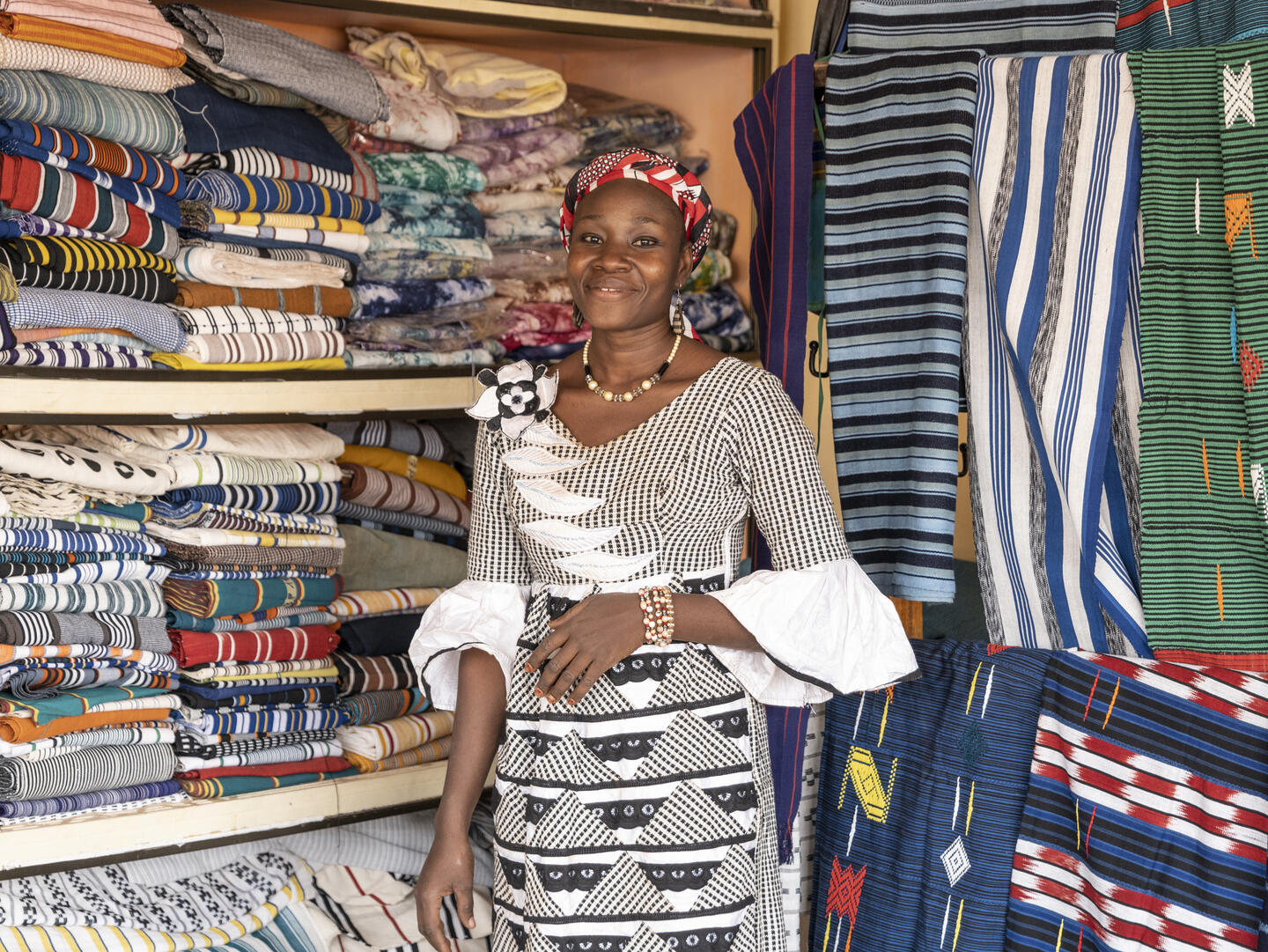
Drawing on her mother’s entrepreneurial spirit, Naïla learned all the steps for traditionally handweaving the cotton fabric “Faso Dan Fani”. Burkina Faso is one of the biggest African cotton producers and exporters, so it is no surprise that it boasts a strong textile heritage.
Speed, endurance, dexterity and an eye for colour are only some of the skills needed to weave on a loom. Despite the hard work of yarn dyeing, washing, winding and warping, all the way to weaving and ensuring quality, plus working outside in small spaces, Naïla was motivated to persist. The art of creating and making her own patterns fascinated her, and she is proud when she designs her own take on traditional weaving patterns.
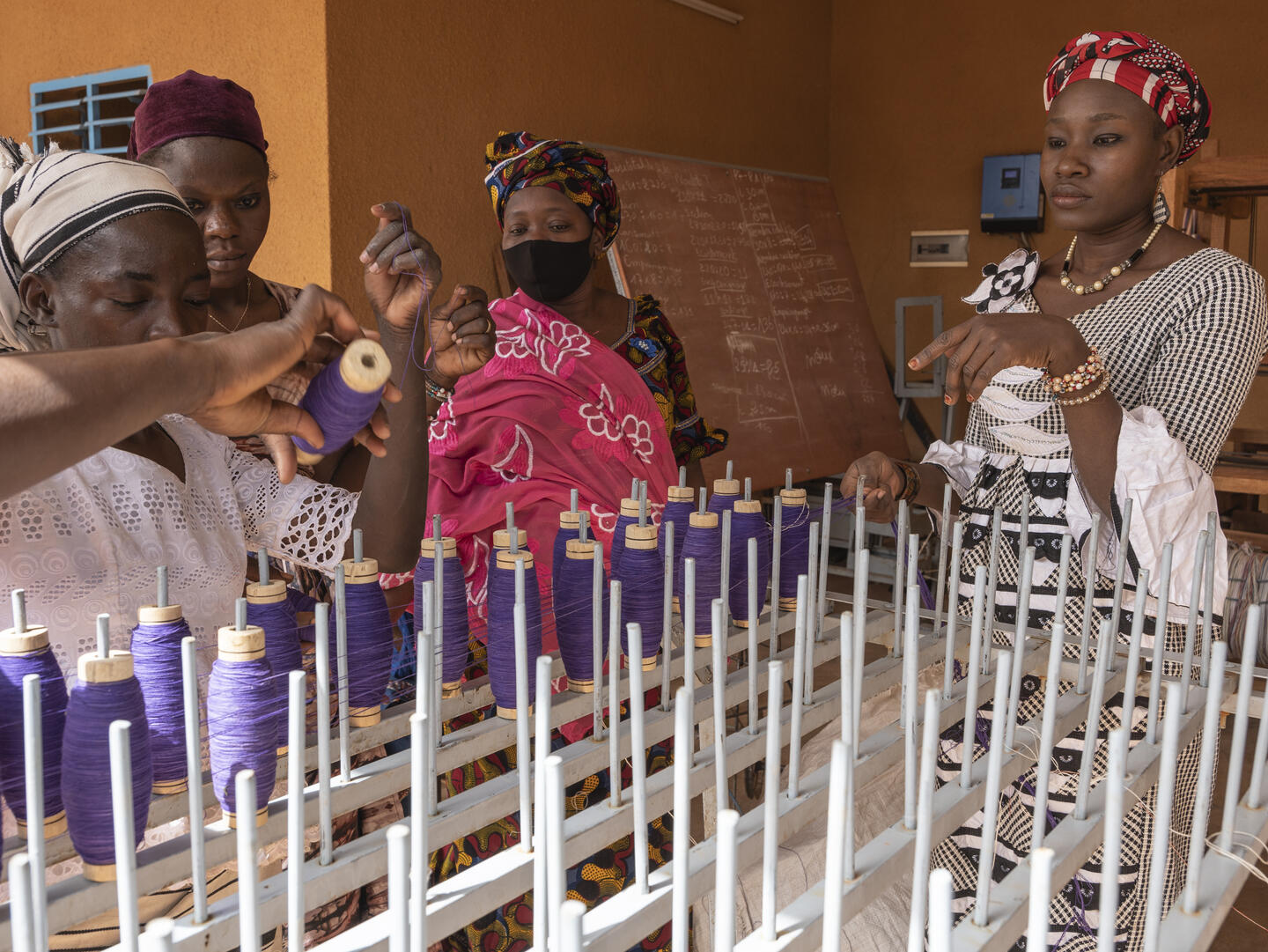
In artisanal sector 24 in Bobo-Dioulasso, where Naïla and her mother founded their workshops, space and resources, such as water, are scarce. People still live as if they were in a small village.
Families are poor and do not have access to education (neighbouring schools are private and more expensive than public schools). Since 2014 Burkina Faso has been suffering from unrest and armed violence, while according to World Bank data, more than 40% of the population lives below the poverty line.
“When people come to buy our fabrics, I must ask them to wait outside. We do not even have a corner for dyeing. With a bigger space, I could recruit more women, which would make me very happy. Right now, we weave under the trees.”
Artisans joining cooperatives have access to better living conditions and a regular income that is crucial for supporting their families. Women are in an especially disadvantaged position economically, despite Bobo-Dioulasso being the second-largest city in Burkina Faso after the capital Ouagadougou.
In sector 24, women in cooperatives can flourish as they are included socially, which allows them to receive more orders, work with others and improve their skills. This also allows for more gender equality and independence.
Video
Naïla set up her own textile cooperative, MASATEX, in 2019, and has managed to recruit 30 women so far. “Finding motivated weavers is the hardest part in setting up a cooperative.”
She benefitted from the International Trade Centre’s initiatives in the country, which helped her set up a secure space, receive several looms as well as get training in codes of conduct, quality management, finances, natural dyeing, and weaving techniques for international requirements.
All this has led to success, and just like her mother’s association, work with the local social enterprise CABES that facilitates orders for international brands. Her social media presence on Facebook and Whatsapp also made her cooperative known and direct orders come from as far afield as Côte d’Ivoire.
Naïla is happy that her customers appreciate her work and that today she is financially independent from her mother and her husband.
“I can do whatever I want thanks to weaving.” But that’s not all. Naïla has big dreams.
“One day, I hope to create exceptional fabrics that I can ship globally, because people know MASATEX. We would produce the yarn from beginning to end, and thus be in control of the whole value chain.”
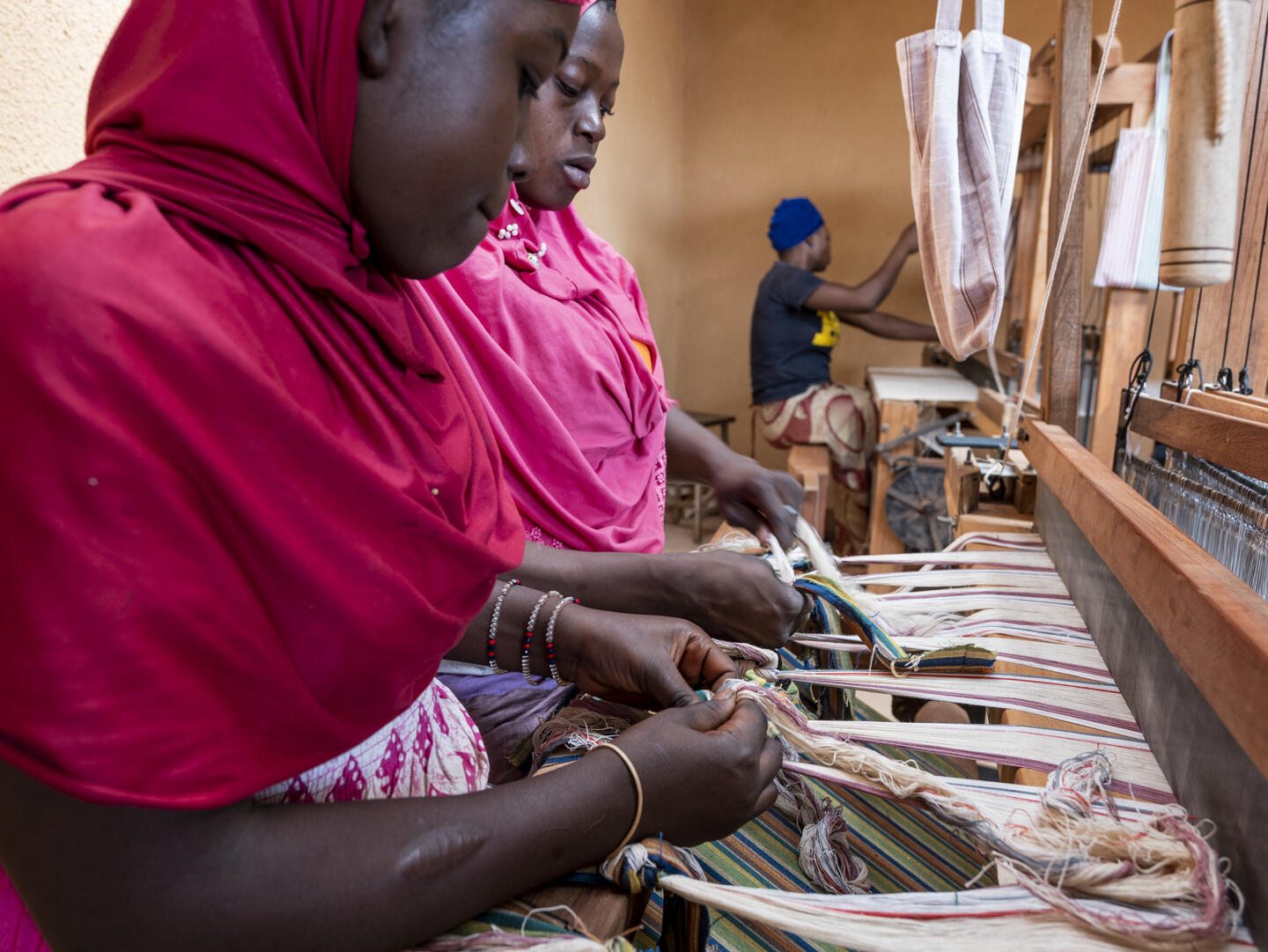
Naïla Sakandé has been a beneficiary of the "ACP Business-friendly: Supporting value chains through inclusive policies, investment promotion and alliances" programme, funded by the European Union and the Organization of African, Caribbean and Pacific States (OACPS) and implemented jointly by the International Trade Centre, the World Bank and UN Industrial Development Organization (UNIDO).
Her work, training and market access is possible through the support of the International Trade Centre’s Ethical Fashion Initiative and its social enterprise CABES (Commerce et Artisanat pour le Bien Etre Social), which promotes the work of marginalized artisans in Burkina Faso. The introduction of wide looms has made the unique fabric attractive to international buyers, including Vivienne Westwood and United Arrows.
The project also plans to establish a one-stop shop for all artisans to enable the women sell their products via e-commerce in 2023.




